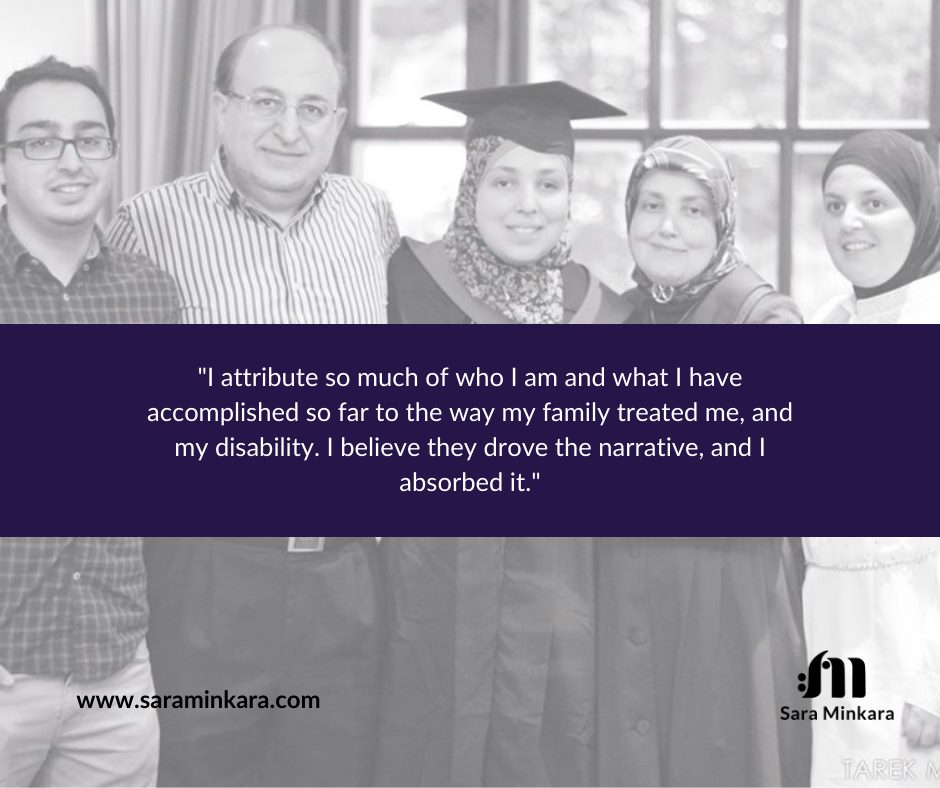How Family Influences Our Narratives
One of the most significant lessons I’ve learned through my work as a social entrepreneur is that effective social change is best achieved when focusing on society at its most granular level: the individual and family. This tends to encourage some introspection, at least for me. I wonder where I would be today if my family situation was different. My parents and relatives were loving and supportive. But I know this is not a universal experience, and I know, too, that the environment children experience from a young age impacts outcomes in their later years. Had I been born into a family that limited and defined me by my blindness, I may have considered my disability as a weakness rather than the blessing that it is. I attribute so much of who I am and what I have accomplished so far to the way my family treated me, and my disability. I believe they drove the narrative, and I absorbed it. And as it turns out, even though we each have very different family experiences, the idea of a family-influenced narrative is taking hold.
As children, our understanding of the world and how we define ourselves is very much shaped by the people we spend our time with. Family members are often a child’s primary source of information about the outside world and themselves during their formative years. Our parents or guardians in particular play an enormous role in establishing the foundations upon which children grow into individuals. How families engage with their children is of particular importance in developing their sense of self. For example, a study conducted by the Australian Institute of Family Studies states that “what parents do is pivotal for their children’s development. Regardless of socio-economic background, children did better when their parents engaged in such activities as reading to them and conversing with them and having children’s books in the home.”
Whether we realize it or not, much of who we grow into was influenced by those early experiences. Upon close examination, you may realize that a lot of your inner self talk and reflexive thoughts and actions can be traced back to the people who raised you, or those you grew up around. Whether you choose today to embrace or detach from their approaches as you settle into adulthood, there is no denying the influence of those perspectives on the person you have become.
An example that comes to mind is when blind children who organically discover echolocation, using sound to find their location in space, are prevented from using it by their well-meaning parents. For those that don’t know “echolocation is a natural practice for any youngster with a visual impairment. Children will often walk into a new space or new room and stomp their feet or yell, seemingly out of the blue. What they are really doing is perceiving a change in the “soundscape” or the echoes that the room produces. Young children, without being trained, can easily tell if they are indoors, outdoors, in a large empty room or a small furnished room, etc. simply by listening to the echoes or “reverberations” of that particular space.” (WonderBaby.org) When parents or others curb this natural adaptive behavior, it is typically because they don’t want their children to seem different. The correction is often initiated by a child’s support system, perhaps their parents or other caregivers. Before the child is subjected to being judged by others, they are judged by those who should be loving and supporting them unconditionally.
Another example is the common aversion white canes, again for ostensible fear of social judgment. Even in the absence of malicious intent, when parents, teachers and others discourage children from incorporating tools that can otherwise support independence like white canes, it can effectively erect barriers to autonomy and self-fulfilment. It is imperative that we reflect on and manage our own insecurities and fears to ensure they don’t impede our children’s ability to navigate challenges and find their own way.
This week we celebrate National Family Day. In its honor, I urge you to reflect on how you address those around you, including your own self-talk. It is never too late to shift your perception, and to shift your own narrative to better align with your own values. If you are a parent, know that how you speak to your child has the power to change their life. Choose your child every day and let them know you are making that choice. Whether your child has a disability or other differences, focus on finding ways to empower them, teach them to empower themselves and to elevate others. Let them know that we all have the ability to change our own lives and to help others. These choices and actions will guarantee growth, for your child and your relationship with your child, and for society more broadly.


